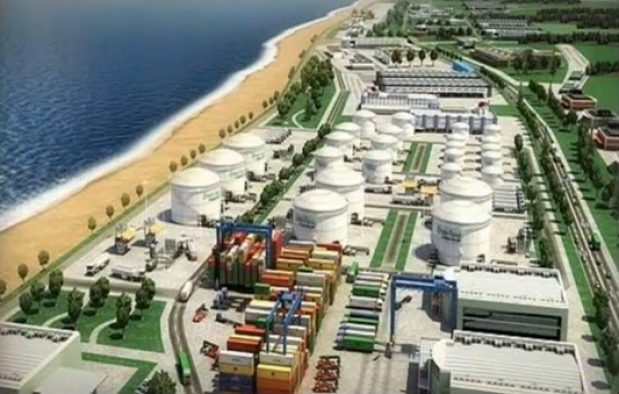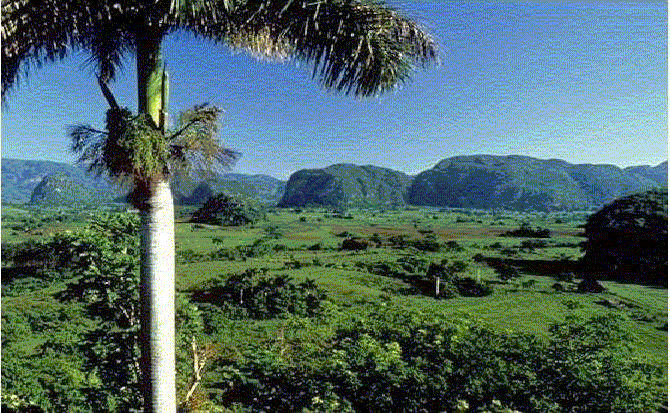OPINION: BIG BETTING, BIG RISKS
Will the Port of Mariel in Cuba be able to compete with other ports in the region if the government(Cuba) does not normalize its relations with the U.S.?
If you would set a monetary value on the opportunities that Cuba has lost for not inserted in the changes that have occurred for years in industrial and technological world, sure the resulting amount would be surprising. And although it is possible to board the train of globalization at any time, the faster the better. Making it again to make a more efficient and internationally competitive, although a possible target, not something that is achieved overnight.
Currently Cuba is on the verge of a moment of opportunity for these to be seized. According to forecasts by the Panama Canal Authority, and expansion works would be completed by 2015. Once built the third set of locks, the canal will allow the transit of mega (post-Panamax) that have the capacity to carry up to 12,600 containers, as opposed to passing now, with capacity for 4,500 only. One of the first consequences will be more time and cost savings in international transport.
Opportunities and challenges
Panama and the Dominican Republic are ahead, as they have ports capable of receiving these ships and have direct services to and from Asia, but other countries are already implementing projects to compete, including Cuba.
The port of Mariel is one of the cards that we Cubans have to insert ourselves into a new dynamic. The scheme works on an ambitious expansion plan and restoration of the port of Havana. To finance the work, Brazil has awarded a multimillion Havana line of credit, while the Brazilian construction company Odebrecht, in partnership with a company linked to the Cuban Army, is responsible for engineering and construction works.
Clearly, the funding and the adequacy of the port will not be obstacles to the regime, but they only represent the first step in a process whose main goal or idea is to make the project viable and competitive. Meta difficult if not before Cuba becomes a normal country, ie able to have full and reliable business relations with other countries, especially the United States, plus they do have competitors in the region.
Suppose Cuba get to have, among other things, good infrastructure (ports, terminals, roads, etc..) Competitive service costs, enabling transparent regulations and merchandise flows … Mariel Will compete with other ports if the country not have normal access to the United States, as have their neighbors in the area?
To cite one example, “The Cuban Assets Control Regulations” includes among its prohibitions that vessels entering Cuba in commerce of goods or services, may not enter a U.S. port to load or unload merchandise to 180 days after have left the island as this, there are other prohibitions that affect not only the possible success of the activity or port logistics Cuba, but also to future projects such as the Special Zone Development called Mariel.
The promoters of the initiative should make a move if you do not want to throw the money you have invested.
Probably in the next two years live an important turning point in the relations between Cuba and other countries. It remains to be seen whether these processes will have a reflection on the domestic situation. This will depend largely on the demands of other governments. Perhaps the only certainty is that today we have the need to diversify the economic and political ties to the island with other countries is growing.
Some say that it would not be the first time the regime insists on a project doomed to failure. However, seeing how the thing in Venezuela, and in the absence of a country willing to subsidize Havana, it is unlikely that this is a luxury that can be Cuban project promoters. Neither foreign partners, however long-term bet.
Sources: DDC/YaxysCires/Excerpt/InternetPhotos/www.thecubanhistory.com
Will the Port of Mariel in Cuba be able to compete?
The Cuban History, Arnoldo Varona, Editor
OPINION: GRANDES APUESTAS, GRANDES RIESGOS
¿Podrá competir el Mariel con otros puertos de la región si el Gobierno (Cuba) no normaliza sus relaciones con EEUU?
Si le asignáramos un valor monetario a las oportunidades que Cuba ha perdido por no insertarse a tiempo en los cambios que desde hace años ocurren en el campo industrial y tecnológico a nivel mundial, seguro que el monto resultante sería sorprendente. Y aunque existe la posibilidad de subir al tren de la globalización en cualquier momento, mientras más rápido se haga, mejor. Aprovechar lo nuevo para hacer un país más eficiente y competitivo a nivel internacional, aunque es un objetivo posible, no es algo que se logre de la noche a la mañana.
Actualmente Cuba se encuentra a las puertas de un momento de oportunidades de esos que hay que aprovechar. Según los pronósticos de la Autoridad del Canal de Panamá, las obras de ampliación ya estarían concluidas para el 2015. Una vez construido el tercer juego de esclusas, el canal permitirá el tránsito de megabuques (post-Panamax) que cuentan con capacidad para transportar hasta 12.600 contenedores, a diferencia de los que transitan ahora, con capacidad solo para 4.500. Una de las primeras consecuencias será un mayor ahorro en costes y tiempo en el transporte internacional.
Oportunidades y retos
Panamá y República Dominicana llevan la delantera, pues cuentan con puertos capaces de recibir esos buques y tienen servicios directos hacia y desde el continente asiático; sin embargo, ya hay otros países que realizan proyectos para poder competir, Cuba entre ellos.
El puerto del Mariel es una de las cartas que tenemos los cubanos para insertarnos en una nueva dinámica. El régimen trabaja en un ambicioso plan de ampliación y restauración de este puerto habanero. Para la financiación de las obras, Brasil ha otorgado a La Habana una multimillonaria línea de crédito, mientras la empresa constructora brasileña Odebrecht, en asociación con una empresa ligada al ejército cubano, se encarga de las obras de ingeniería y construcción.
Es evidente que la financiación y la adecuación del puerto no serán escollos para el régimen, pero estas solo representan el primer paso de un proceso cuya principal meta o idea es lograr que el proyecto sea viable y competitivo. Meta difícil de alcanzar si antes Cuba no se convierte en un país normal, es decir, capaz de tener relaciones comerciales plenas y confiables con otros países, en especial con Estados Unidos, ventaja que sí tienen sus competidores en la región.
Supongamos que Cuba llegue a tener, entre otras cosas, buenas infraestructuras (puertos, terminales, carreteras, etc.), costes de servicios competitivos, regulaciones transparentes y facilitadoras de los flujos de mercancía… ¿Podrá competir el Mariel con otros puertos si el país no tiene un acceso normal a Estados Unidos, tal y como tienen sus vecinos del área?
Por citar un ejemplo, “The Cuban Assets Control Regulations” recoge entre sus prohibiciones que los buques que entren a Cuba en actividades de comercio de bienes o servicios, no podrán entrar a un puerto de EEUU para cargar o descargar mercancía hasta 180 días después de haber salido de la Isla. Como esta, hay otras prohibiciones que afectan no solamente al posible éxito de la actividad logística o portuaria cubana, sino también a proyectos futuros como el de la llamada Zona Especial de Desarrollo del Mariel.
Los promotores de la iniciativa deberán mover ficha si es que no quieren tirar el dinero que han invertido.
Probablemente, en los dos próximos años vivamos un importante punto de inflexión en las relaciones de Cuba con otros países. Está por ver si estos procesos tendrán un reflejo en la situación interna. Ello dependerá en gran medida de las exigencias de otros gobiernos. Quizás la única certeza que hoy podemos tener es que la necesidad de diversificar los vínculos económicos y políticos de la Isla con otros países será creciente.
Hay quienes dicen que no sería la primera vez que el régimen se empeña en un proyecto condenado al fracaso. Sin embargo, viendo cómo está la cosa en Venezuela, y ante la inexistencia de un país dispuesto a subsidiar a La Habana, es difícil que este sea un lujo que puedan darse los promotores cubanos del proyecto. Tampoco sus socios extranjeros, por muy a largo plazo que apuesten.
Sources: DDC/YaxysCires/Excerpt/InternetPhotos/www.thecubanhistory.com
Would it be able to compete the Port of Mariel?
The Cuban History, Arnoldo Varona, Editor








